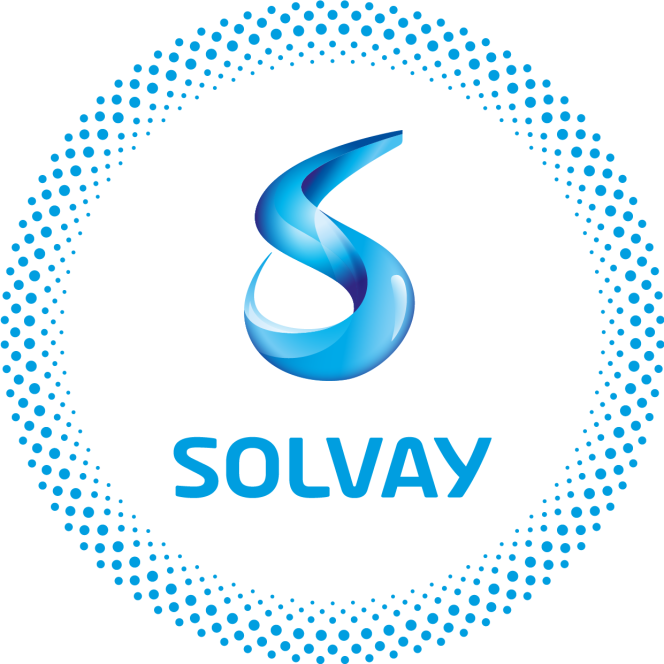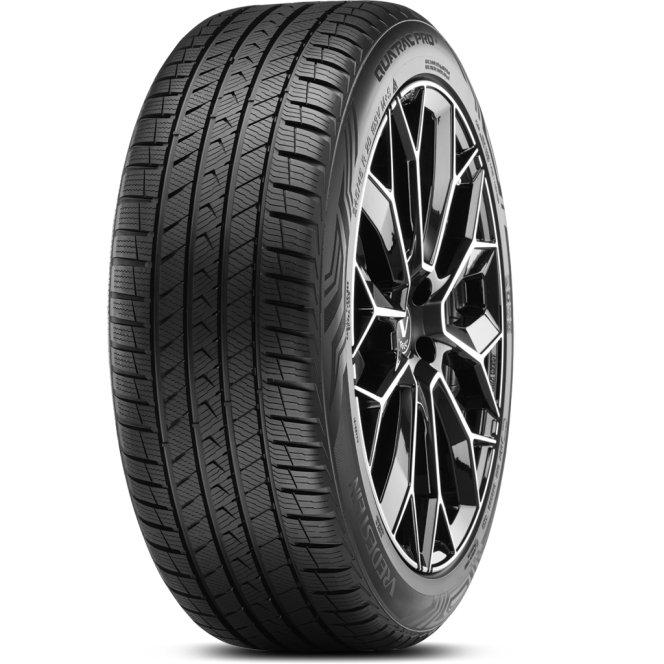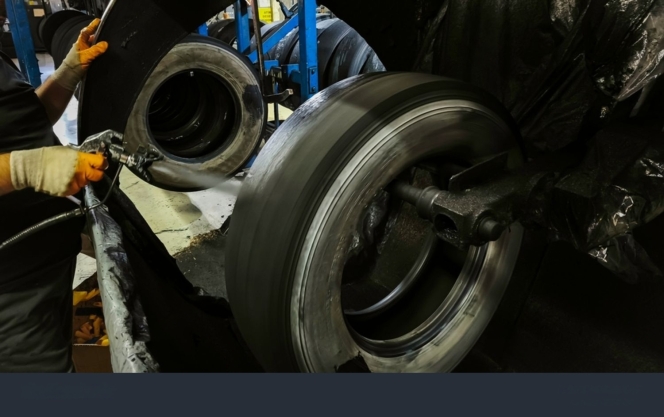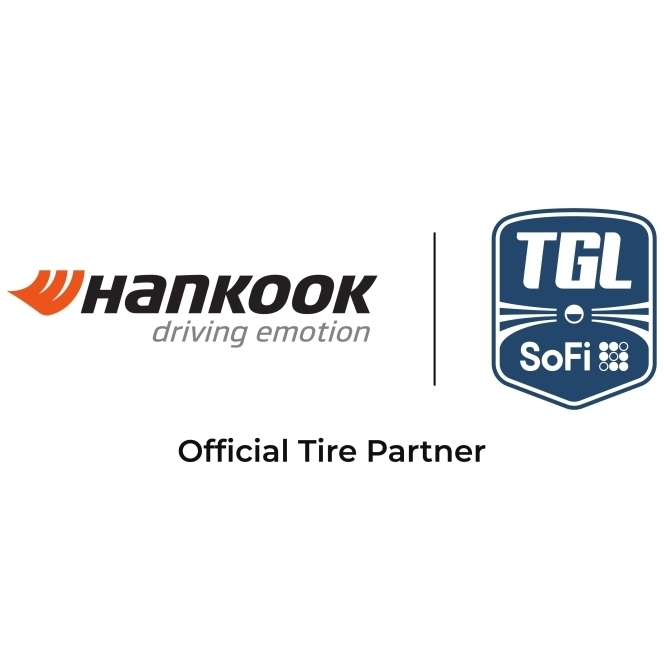Solvay Launches Bio-Circular Silica In Europe
- By TT News
- January 17, 2023

Solvay is investing at its Livorno site in Italy to launch the company’s first unit of circular highly dispersible silica (HDS), made with bio-based sodium silicate derived from rice husk ash. This silicate process provides a circular solution as it gives a second life to rice husk in a local value chain. Coupled with renewable energy integration at the plant, it will allow Solvay to achieve a 50 percent reduction in CO2 per tonne of silica. Solvay claims that this will make the Livorno site Europe’s best-in-class silica production site in terms of CO2 footprint. The production is expected to start by the end of 2024.
The Group will gradually replace its existing Zeosil portfolio with circular HDS, providing a circular solution for tyres that will contribute both to increasing the use of sustainable raw materials and reducing the tyre industry’s CO2 footprint. This new generation of precipitated silica will also address the needs of home and personal care and the feed and food industries.
According to Solvay, it is the first company to commit to circular HDS production at a European site within a concrete time frame, and is now focused on building the necessary ecosystem to bring it to market. This involves working with stakeholders across the entire value chain, and Continental is a key partner in this journey. Through the implementation of this competitive rice husk ash (RHA) proprietary process in Europe, the company is able to ensure consistent product quality by levelling out the variability of agro feedstocks.
Claus Petschick, Head of Sustainability at Continental Tires, said, “Silica is essential for the high performance of our tyres. And with Solvay’s bio-circular silica, our tyres will at the same time become more sustainable. It reduces the overall carbon footprint and increases the share of renewable materials in our tyres. Rice husk is an agricultural by-product that was not used for tyre production until very recently. Soon they will take us one step closer to our goal of 100 percent sustainable materials in our tyres by 2050 at the latest."
Solvay also has plans to build a new plant in North America over the coming years to expand its HDS capacity which will significantly increase the Group’s footprint in the region, the company states. This new facility will be designed for circular raw materials and be aligned with the company’s carbon neutrality roadmap. The Group is also investigating projects on circular HDS in Asia and South America.
Ilham Kadri, CEO, Solvay, said, “Building on our constant drive for progress and innovation, the launch of our circular HDS in Europe is just the first step in a longer-term project that will enable us to offer a circular solution to tyre manufacturers and other industries across the world as we continue to reinvent progress with our silica offering.”
Vredestein Quatrac Pro+ Wins Top Spanish All-Season Tyre Award
- By TT News
- December 31, 2025

The Vredestein Quatrac Pro+ has been named ‘All Season Tyre of the Year’ at Spain’s prestigious industry awards organised by Neumáticos y Mecánica Rápida magazine and Posventa.com. This premium tyre, manufactured in Europe by Apollo Tyres Ltd, prevailed in a competitive field by excelling in critical areas such as safety, technological innovation and everyday usability, as determined by both an independent expert jury and reader votes.
The tyre earned this honour by delivering exceptional, versatile performance across diverse conditions, providing reliable safety and control on dry roads, in wet weather and through light snow. It also achieves high marks for driving comfort and efficiency. Developed to meet the needs of passenger cars and high-performance SUVs, the Quatrac Pro+ responds to the growing consumer demand for a single, year-round tyre solution that does not compromise on capability or driver confidence.
This award solidifies Vredestein’s position as a leading and innovative reference brand within the all-season tyre market. The official award ceremony is scheduled for February during the annual Tyre of the Year event, which will convene prominent representatives from across Spain’s tyre, automotive and aftermarket industries to celebrate the year’s top products.
Yves Pouliquen, Vice President, Commercial EMEA, Apollo Tyres Ltd, said, “This award is a strong endorsement of our commitment to delivering premium, high-performance all-season tyres tailored to the needs of European drivers. The Quatrac Pro+ encapsulates Vredestein’s longstanding expertise in all-season technology, combining safety, comfort and innovation.”
- INDIAN TYRE INDUSTRY
- TYRE RETREADING
- BIS STANDARDS
- IS 15704
- ECE R109
- CIRCULAR ECONOMY
- MSME CHALLENGES
- AUTOMOTIVE REGULATION
- CARBON REDUCTION
- FREIGHT
- LOGISTICS
Retreading Hangs In Balance Over Regulatory Conundrum
- By Gaurav Nandi
- December 30, 2025

A population of over 1.4 billion people catapulting into the world’s third largest automobile market with four million trucks plying across a road network of 6.3 million kilometres supported by a USD 13.4 billion tyre market and a mining sector contributing around 2–2.5 percent of the country’s GDP demonstrate the strength of India’s automobile, freight and tyre sectors.
The story doesn’t end there as the Central Government adopts a strategic approach on reducing carbon emissions across these verticals, especially automobile and tyres, with targets such as the Net Zero Carbon Emissions by 2070, battery electric vehicles target by 2030, zero-emission truck corridors, Extended Producer Responsibility for the tyre sector; the list just goes on.
Amidst all such statistics and targets, a silent spectator remains the old and varied sector of tyre retreading. In a recent news story reported by Tyre Trends, the Indian Tyre Technical Advisory Committee (ITTAC) had made a proposal to Tyre Retreading Education Association (TREA) for mandating certain standards that will improve the quality of retreads. ITTAC has made recommendations to the BIS committee. TREA is part of the same committee. ITTAC and TREA are recommending different standards.
These standards included BIS retread standards, namely IS 15725, IS 15753, IS 15524 and IS 9168. The ITTAC had partially aligned Indian requirements with ECE R109, the European regulatory benchmark.
In a reply to the proposal, which was accessed by Tyre Trends, TREA urged the Indian Tyre Technical Advisory Committee to seek a deferment or non-applicability of BIS standard IS 15704:2018 for retreaded commercial vehicle tyres, warning that mandatory enforcement could cripple the sector.
In the letter, TREA argued that IS 15704:2018 is largely modelled on new tyre manufacturing norms and is technically unsuitable for retreading, which is a restoration and recycling process.
The standard mandates advanced laboratory tests such as spectrometer-based rubber analysis, endurance testing and compound uniformity checks, requirements that most retreading units, particularly small and medium enterprises, are not equipped to meet
The association highlighted that even large retreaders lack the infrastructure and skilled manpower needed for BIS-grade testing, while the sheer number of retreading units would make inspections and certifications operationally unmanageable for regulators.
TREA warned that compliance costs linked to machinery upgrades, audits and quality control could force 70–80 percent of units to shut down, leading to job losses, higher fleet operating costs and adverse environmental outcomes due to reduced recycling
Instead, TREA proposed that BIS prioritise retreading-specific standards such as IS 13531 and IS 15524, which focus on materials, process control, safety and quality consistency.
The body has also called for a phased transition roadmap, MSME support and industry training before any stricter norms are enforced, stressing that abrupt implementation would undermine the sector’s role in India’s circular economy.
The conundrum
India has a total of 36 administrative divisions comprising 28 states and 8 union territories. The tyre retreading sector has been continuously supporting circularity goals since the early 1970s across the world’s largest economy without getting mainstream recognition.
Even after five decades in service, the industry battles different bottlenecks including fragmentation, manpower shortage, tax pressures brought about by the recent GST revisions and now the implementation of such standards, just to name a few.
The sole practice that can simultaneously reduce carbon emissions from tyres and extend tyre life is assumed the nemesis of an ‘infamous and dangerous practice’ in some states of the country.
However, the industry has been drawing its techniques and quality parameters from the world’s oldest retreading economy, Europe.
“Big retreaders in India already have the necessary processes in place that conform to IS 15524 standards. However, as the standard is not yet mandated, we have voiced support for it because it is process-oriented and outlines how retreading should be carried out, including buffing and building procedures,” said TREA Chairman Karun Sanghi.
He added, “This standard focuses on how the work is done rather than imposing product-level testing that cannot be practically implemented. The current debate on IS 15704 stems from it being fundamentally incompatible. The standard includes requirements such as sidewall marking and destructive testing of retreaded tyres, which are impractical in a retreading environment where each tyre differs in brand, size, application and usage history,” he added.
Destructive testing, he argued, assumes uniform batch sizes. In retreading, where every casing is unique, testing even a single tyre would mean destroying finished products without yielding representative results. Applying such a framework would effectively require the destruction of every tyre in a batch, making compliance unviable.
“We have submitted our response to ITTAC and are awaiting feedback from the committee. We remain open to continued dialogue and will engage further once the committee responds to our submission,” said Sanghi.
According to him, a typical retreader processes about 300 tyres a month across multiple brands including MRF, JK Tyre, Apollo and Michelin and applications ranging from buses and trucks to mining vehicles. These casings vary widely in load cycles, operating conditions and duty patterns, often across several models from the same manufacturer.
The committee has cited European standard ECE R109, but Sanghi points to structural differences: “Europe is a global retreading hub where tyre manufacturers such as Michelin and Bridgestone dominate operations, collect their own tyres, retread them and return them to fleets, making batch-based destructive testing relevant. A similar model exists in US, where large tyre companies lead retreading and largely self-regulate without a single overarching standard. The Indian scenario is different, especially with a fragmented market.”
He stressed that the industry is not opposed to standards but to those that cannot be practically applied, warning that adopting European manufacturing-oriented norms without accounting for India’s market structure and operating realities would be counter-productive.
The debate is no longer about whether standards are needed but whether they are fit for purpose. Without accounting for India’s fragmented retreading ecosystem, enforcing impractical norms could dismantle a circular industry in the name of compliance.
TGL Season 2 Kicks Off With Hankook As Founding And Official Tire Partner
- By TT News
- December 29, 2025

The second season of TGL Presented by SoFi, where Hankook Tire serves as the Founding and Official Tire Partner, commenced on 28 December 2025. This innovative league, a venture of TMRW Sports with backing from icons like Tiger Woods and Rory McIlroy, represents a strategic alignment for Hankook, uniting two entities driven by technological advancement. The partnership provides a global platform to reinforce Hankook's premium brand positioning across North America and worldwide through extensive visibility during broadcasts and at the state-of-the-art SoFi Center in Florida.
This unique venue embodies the league's fusion of sport and technology, featuring a massive simulator with a dedicated ScreenZone and a dynamic GreenZone. This area, equipped with a turntable and over 600 actuators, meticulously replicates real-world golf conditions indoors, creating an immersive arena experience. The competition itself is fast-paced and engaging, with teams of PGA TOUR players competing in Triples and Singles sessions over 15 holes. Innovative elements like the point-doubling ‘Hammer’, real-time strategy via ‘Hot Mic’ and a Shot Clock ensure a dynamic spectacle for fans.
The season opener presented a compelling narrative as a rematch of the inaugural finals, pitting the undefeated Atlanta Drive GC, featuring Justin Thomas and Patrick Cantlay, against a determined New York Golf Club squad led by Matt Fitzpatrick and Xander Schauffele. This match set the tone for an intensive season running through March, where six teams and 24 top golfers will compete. For Hankook, this partnership is more than signage; it is an active engagement with a global community, delivering a distinctive brand experience that bridges cutting-edge mobility and sport for enthusiasts everywhere.
Dunlop Secures CDP ‘A List’ Recognition For Climate Change And Water Security
- By TT News
- December 29, 2025

Dunlop (company name: Sumitomo Rubber Industries, Ltd.) has made its way to the annual A-List of CDP for climate change and water security. This premier designation, awarded for the first time to the company in the 2025 evaluation, recognises world-leading performance in transparency, risk management and environmental action. CDP’s annual assessment is a key benchmark for corporate sustainability across climate, water and forests.
This achievement stems from the Group’s integrated approach to material issues outlined in its corporate philosophy. It treats the interconnected challenges of climate change, biodiversity and the circular economy holistically, advancing concrete initiatives under its long-term ‘Driving Our Future’ sustainability policy.
On climate, the Group’s science-based emission reduction targets for 2030 are validated by the Science Based Targets initiative. Operational efforts include pioneering green hydrogen production at its Shirakawa Factory and developing tyres made entirely from sustainable materials by 2050. The company also works to reduce emissions across its supply chain, lowers tyre rolling resistance to improve vehicle fuel economy and extends product life through retreading.
For water security, the strategy is driven by localised risk assessments at global production sites. In seven facilities identified as high-risk, the goal is to achieve 100 percent wastewater recycling by 2050. Progress is already evident, with the company’s Thailand factory reaching full wastewater recycling in 2024.
These coordinated actions on multiple environmental fronts formed the basis for the Group’s simultaneous top-tier recognition in both critical categories from CDP.







Comments (0)
ADD COMMENT